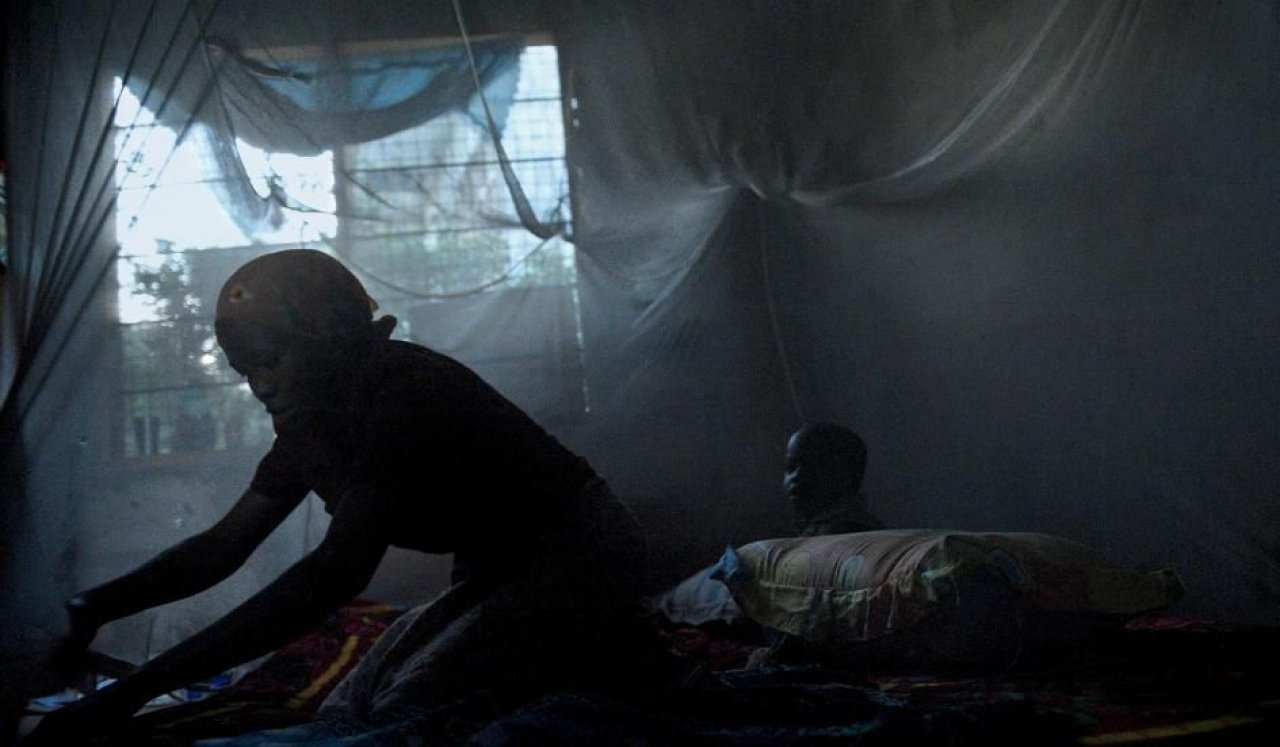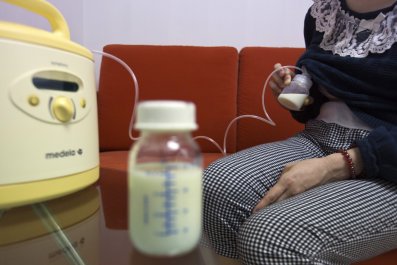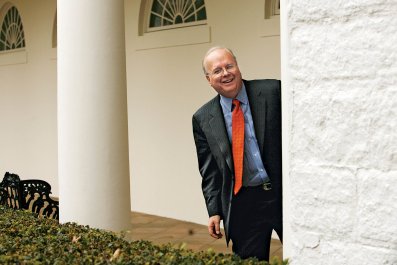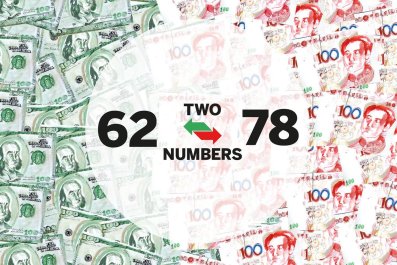One afternoon this summer, I came across a Duka la Dawa—the drug shops that are as common in Tanzania as bodegas are in Brooklyn—on a winding dirt road in a southwestern town, Mlowo. Beside the store, a man at a repair shop crouched over a dissected motorcycle engine, its oil-stained parts laid out on cardboard. A woman walked past, selling yams balanced on a platter on her head. I entered the Duka and asked what the pharmacist behind a counter had for malaria, the mosquito-borne disease that kills some 1,700 people every day in sub-Saharan Africa and Southeast Asia.
He offered me five kinds of pills of varying quality and price. Some were artemisinin combination therapies, or ACTS, quality assured by the World Health Organization (WHO); others were much less effective medicines, unable to counter the drug-resistant malaria parasites that have emerged in recent years. In some cases, these pills will even accelerate antimalarial resistance. Tragically, in this poor part of the world, many people will choose the pennies saved on the cheaper drugs over the top-shelf stuff.
In the U.S., if you want an antimalarial, you have to go see a doctor and get a prescription; this ensures that Americans are treated with only the best malaria drugs. But not in most African countries, where private doctors are rare and public hospitals are often far away, and frequently lack supplies and staff. Here, parents with sick children go up to their local Duka and take whatever they're selling.
That makes for an unregulated market in which shop owners will sell their sick customers anything they will buy, whether it's the best choice or not. Aid organizations are trying to change that: Between 2010 and 2013, $450 million was funneled into subsidies for high-quality malaria medicines, so that shop owners in Tanzania and six other African countries could buy and sell the best pills at a low price. About $130 million more will likely be spent on subsidies this year.
Originally called the Affordable Medicines Facility for Malaria (AMFm), the subsidy strategy marked a radical departure from traditional global health efforts: For one of the first times ever, drugs were sold directly to the informal private sector, rather than donated to government-run hospitals. When the Nobel Prize–winning economist Kenneth Arrow conceived of AMFm in 2004, he and other economists described the strategy as malaria treatment, the Coca-Cola way. "Coca-Cola relies on low prices and the market to drive out the competition in remote African villages, so why can't we do the same thing with high-quality drugs?" asks Ramanan Laxminarayan, a health economist who served on the committee that authored AMFm proposal.
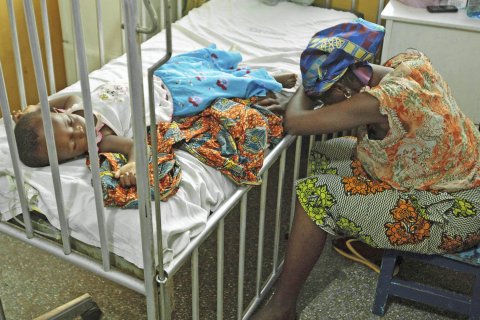
Two years after AMFm launched in 2010, the price of the best malaria drugs—the ACTs, which contain artemisinin, an ingredient from Chinese sweet wormwood—dropped in five of the seven countries with AMFm subsidies. At just over a dollar, the pills hovered slightly above the cost of the inferior drugs. As a result, high-quality ACTs sold briskly at an unprecedented pace.
But one major problem remains: No one knows whether the people who bought all those malaria drugs had malaria.
Because malaria has long been rampant in Africa, people often assume that any aches and pains are caused by it. But that's less and less of a good bet as malaria rates decline across the continent. Yet people hold on to the suspicion that malaria underlies most fevers, and a customer in pain wants malaria treatments as much as shopkeepers want to sell them. "If ACTs are cheap, people will overuse them because they think, If I'm cured of malaria, good. And if not, I just spent about [60 cents]," says Chacha Mangu, a doctor and epidemiologist at the National Institute for Medical Research in Mbeya, Tanzania.
The problem with this strategy is that the fever-reducing ingredients in malaria pills will make patients feel better while the true cause of their ailment might fester dangerously. The pills won't, for example, kill off bacteria that underlie pneumonia and urinary tract infections, nor will they fight viral diseases, such as dengue fever and rift valley fever. A patient stricken with dengue fever will stop by the pharmacy, grab an antimalarial and go home; by the time he or she finds out the drugs aren't working, it might be too late. And with this type of rampant antimalarial misuse, precious donor funds meant to be used to save lives are squandered.
In response to outcry from the WHO, the U.S. government and others, the huge international organization that hosted AMFm—the Global Fund to Fight HIV, Malaria and Tuberculosis—overhauled the approach this year. The five countries (Tanzania, Uganda, Ghana, Kenya, and Nigeria) that still get subsidies are now experimenting with ways to incorporate diagnostic tests into the free market.
Just about anyone can learn how to diagnose malaria. Today's rapid diagnostic tests look like pregnancy tests. Place a drop of blood on a white stick and wait 15 minutes to see if a red line indicating malaria appears. But a shopkeeper's goal is to turn a profit. Why would he not sell a drug without giving the test?
At that Duka in Mlowo, the pharmacist told me he would gladly test customers for malaria for a fee. I then asked what he would do if I tested negative, and he replied that if I suffered from the fever and aches that typically accompany the disease, he'd sell me a malaria pill regardless.
For the past few years, health economists have batted around ideas about how to incentivize shopkeepers to abide by test results. For example, they've considered asking pharmacists to charge a single price for the test and treatment, so that there's no profit to gain from selling an unnecessary drug. However, this requires regulatory strength that most sub-Saharan countries lack. That's why many now think that change must come from consumer demand.
The goal is convincing pharmacists that they can get a boost to their reputation by selling tests and referring customers to a hospital if the results are negative. "We're presenting this [to pharmacists] as a business case: We think there's a business advantage to providing a higher quality of care," says Melissa Higbie, the director of programs in Tanzania for Population Services International (PSI), a Washington, D.C.-based organization that coordinates "road-shows" where DJs and breakdancers try to spread awareness of proper malaria pill use.
In theory, this all sounds good and right. But it was business as usual at a handful of private clinics I visited one month after the organization's pilot began. Even when tests came back negative, mothers with sick children usually left carrying malaria pills. This could be because the seller wanted to make a profit. But it could also be because pharmacists hate to turn a sick child away empty-handed. After all, missing a case of malaria could lead to death—kids, lacking immunity, can die from the disease within a week. Mangu says, "It takes a competent physician to convincingly assure a mother to take their child home and wait a few days, to just drink water and take a rest."
But Jane Miller, senior adviser to malaria prevention and case management at PSI, says it's too early to despair. "These guys have just been giving out ACTs like they were Smarties for years," she says. "Change takes time."



